Lindsay McKee is the Education Coordinator for Pasa’s Diversified Vegetable Apprenticeship.
At Pasa we believe the best way to help people navigate the pathway to a sustainable career in farming is by connecting folks at every stage of their journey. Whether you’re new to farming, running a farm, or somewhere in between—working side-by-side and sharing knowledge are keys to success.
This is the vision that fuels our apprenticeship programs. And it’s what brought us to The Good Farm on a sunny fall day in Pennsylvania’s Lehigh Valley.
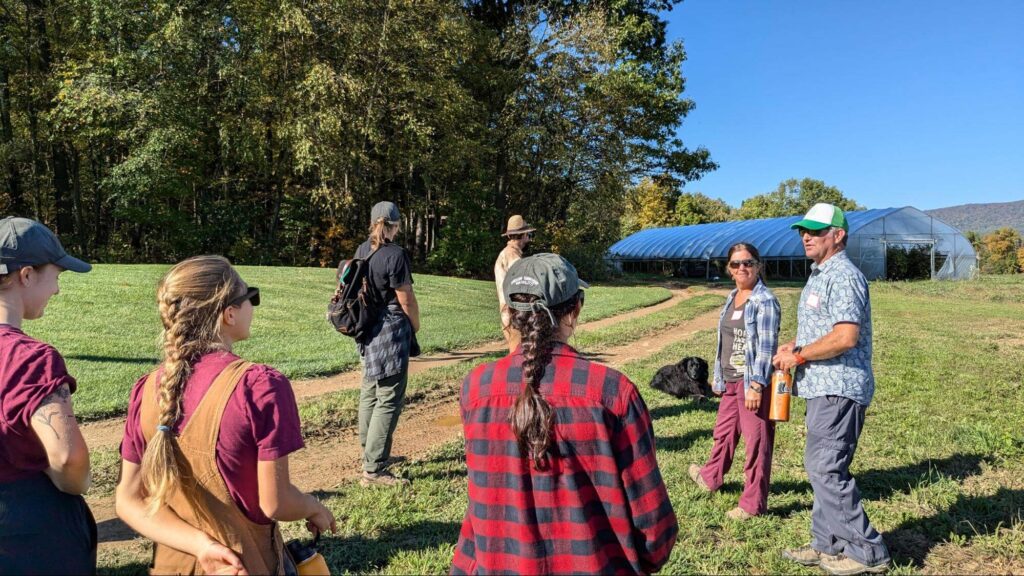
Farmers John and Aimee Good opened their farm to participants and graduates of Pasa’s Diversified Vegetable Apprenticeship and Pre-Apprenticeship for the programs’ third annual meetup.
Our Diversified Vegetable Apprenticeship connects beginning farmers with established mentor farmers. By training on working farms, apprentices acquire the skills they need to manage or start their own vegetable farm, while mentor farmers gain a committed employee invested in farming as a career.
For those who don’t yet have the required season of experience to enter apprenticeship, Pasa’s Pre-Apprenticeship offers introductory farm training experience through over a dozen training partners in the region.
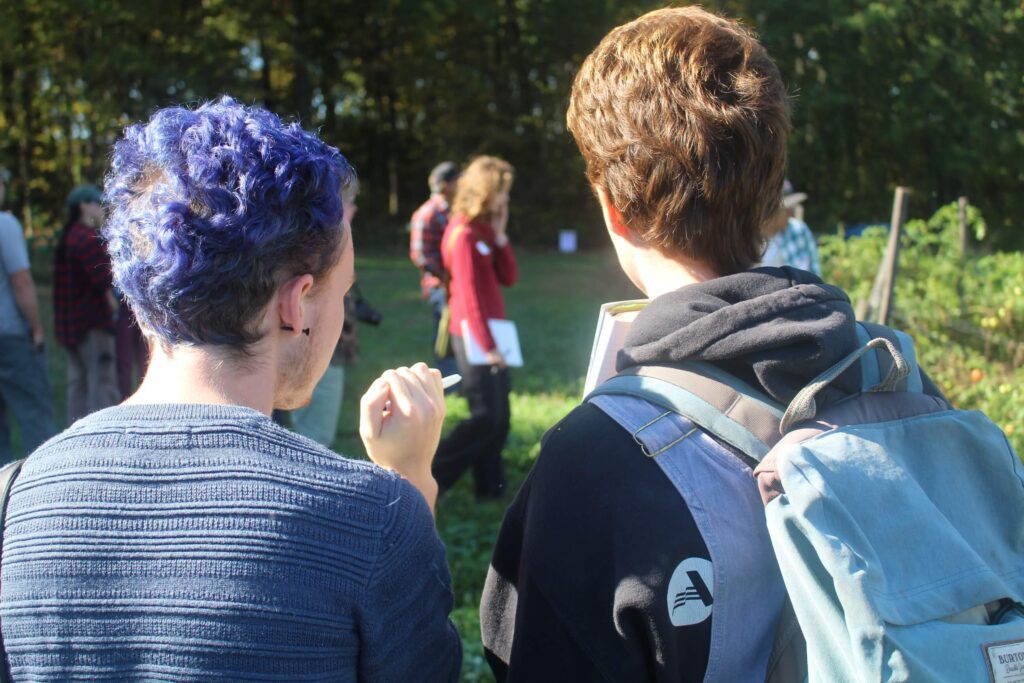
The Goods gave the group a tour of their production fields, high tunnels, greenhouse, barn, wash-pack, and farm market. Apprentices, pre-apprentices, and mentor farmers alike were jotting down notes and asking questions about how John and Aimee run their certified organic operation.
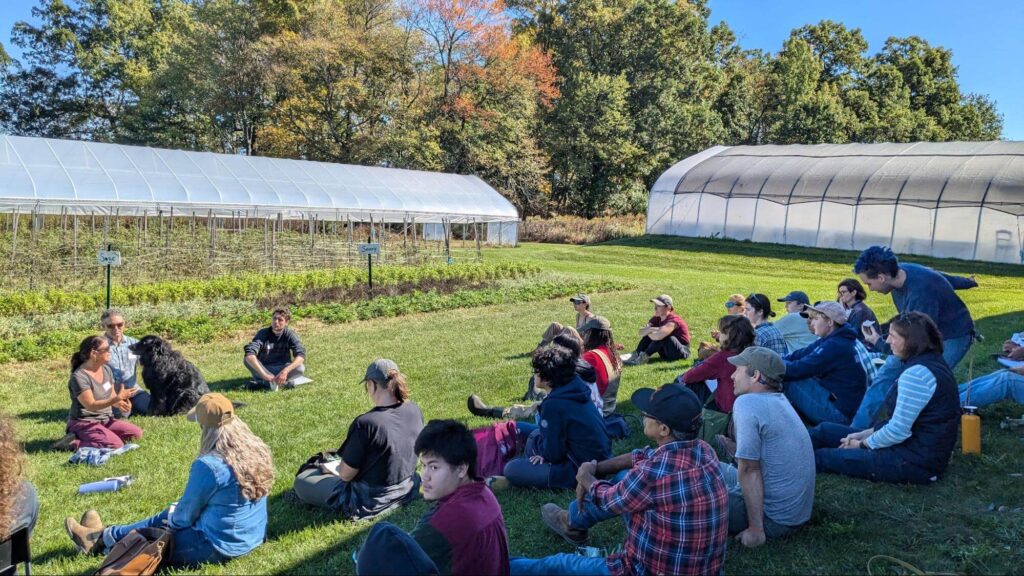
After the tour, John and Aimee joined Pasa’s Research Team for a candid conversation about their participation in our Financial Benchmark Study. This ongoing farmer-driven research collects data from working farms to establish industry benchmarks and investigate whether farmers are able to earn a living by growing vegetables.
Preliminary findings show some harrowing numbers. For instance, the median net annual income for vegetable operations under 12 acres in the study is less than $20,000.
Still, at every scale of farm in the study, there are success stories. And the Good Farm is one of them. We dug into how they’ve been able to make it work.
“You can’t farm alone. It really takes community,” Aimee said. “And for us, that community is really the backbone of our business.”
The Goods shared details about how they’ve tailored their 250-share CSA, to offer customers a mix of staple products, unique seasonal offerings, and optional u-pick flowers and herbs. These and other thoughtful touches keep customers coming back year after year.
Questions from the group about how to sustain a career in farming prompted John and Aimee to share their own journey to becoming farm owners.
They both spent several years apprenticing on farms in Massachusetts, followed by many more years working on farms in Pennsylvania. They ran their own operation on leased land for a decade before finally buying the 18 acres they now call home.
The Goods feel that many of their early farming experiences still contribute to their success today.
John shared, “A lot of the efficiencies that help keep us profitable are things we learned working on other farms.”
In order to complete the program, apprentices and pre-apprentices have to gain an understanding not only of production strategies like irrigation and pest control, but also in topics like marketing, labor management, and farm finances.

Diversified Vegetable Pre-Apprenticeship graduate Ethan Kramer from The LEAF Project shared that the program helped him go from knowing “nothing [about farming] to learning a lot—from business, to markets, to greenhouses… and just how many people it impacts.”
Tomatoes are Ethan’s favorite thing to grow, so seeing the Good’s high tunnel full of grafted tomatoes was a highlight of the meetup for him.
After a break for lunch, participants got to choose between two afternoon activities. Some opted for a farmer-focused workshop on ergonomics and wellbeing with Cynthia Flores of Labor Movement. Others joined John and Aimee out in the field for a very satisfying sweet potato harvest.
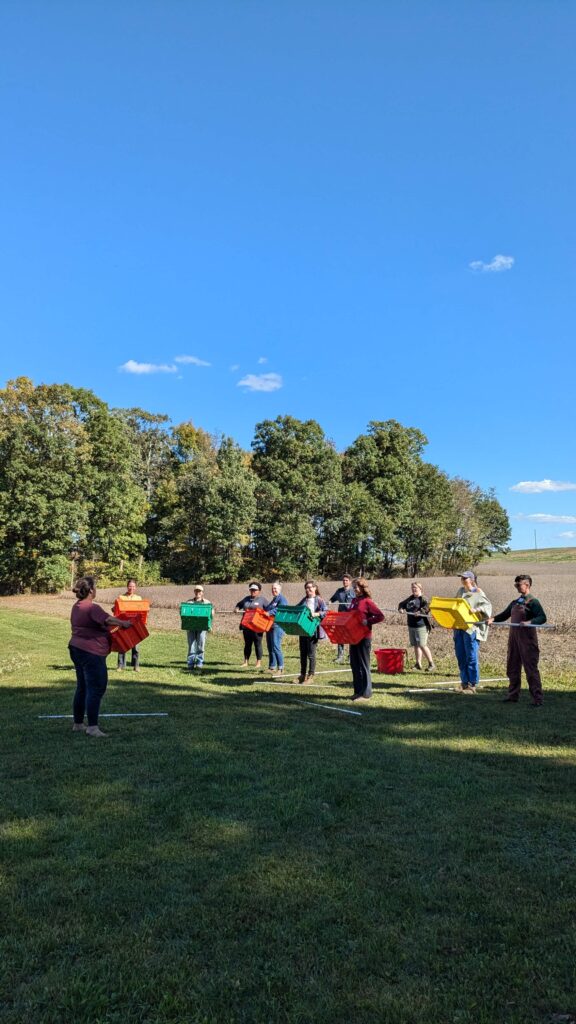
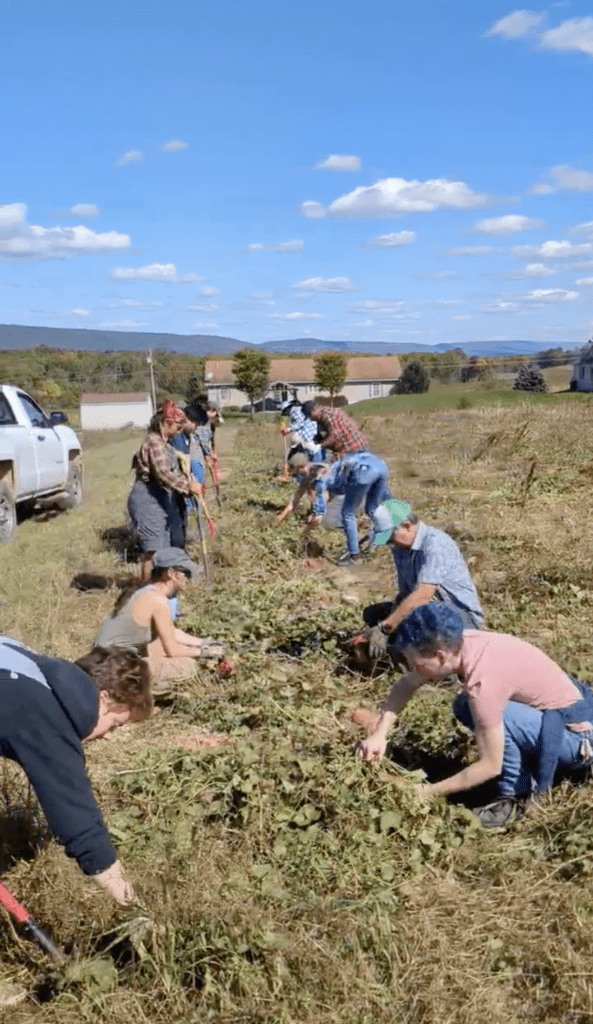
I spotted apprentice Kevin Jackasal and mentor farmer Brian Bruno of Apple Ridge Farm working side-by-side in the sweet potato field and asked them to chat a bit about the program.
“When I found out about the Pasa [apprenticeship] program and its two-year curriculum, I knew I had to be a part of it,” said Kevin.
He had completed coursework through the Cornell Small Farms Program before enrolling in Diversified Vegetable Apprenticeship and joining Apple Ridge’s farm crew in May of 2024.
“Since then, I’ve been on an amazing journey of learning so many things on the farm, while also going around to other farms and meeting other farmers within the community that are sharing a similar vision.”
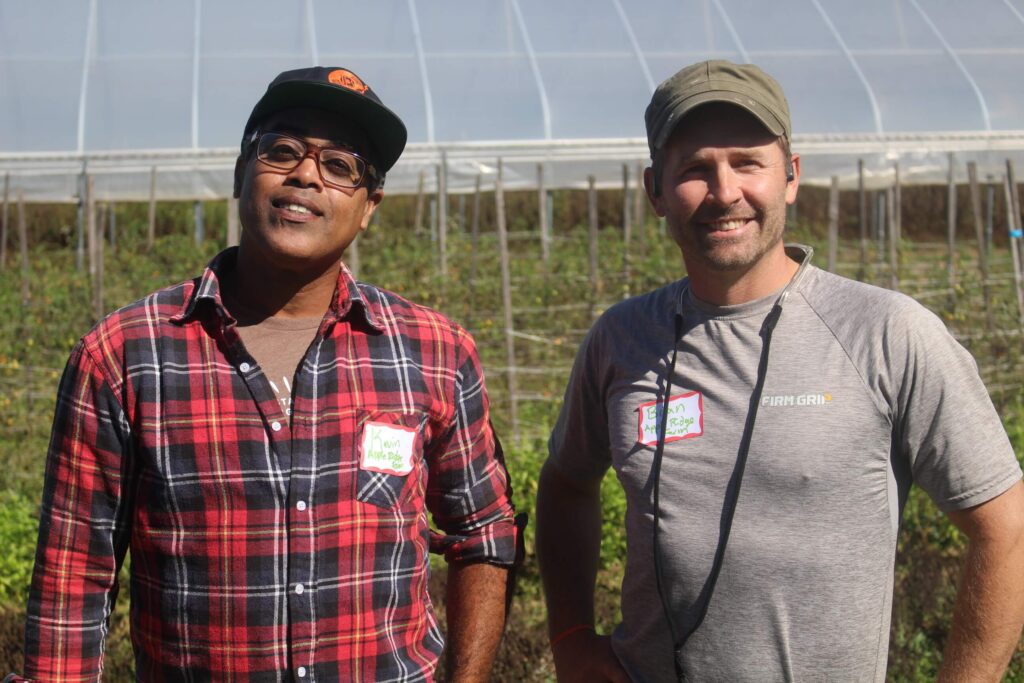
With the farm’s multiple enterprises including vegetables, livestock, and an on-farm bakery, Kevin says, “There’s always something new to keep your hands busy, to keep your brain busy—meeting customers, going to markets. The future of that is what I’m interested in.”
He added, “The first year is hands-on. We’re about to enter a phase of the program that’s planning. I’m looking forward to incorporating some of the things I’ve learned this year.”
Mentor farmer Brian Bruno shared:
“Because it’s a two-year program, it allows us to train them the first year, and then have them come back the next year really as more of a leader.”
Apple Ridge has several graduates of the program, also known as journeyworkers, still working with the farm through several value-added enterprises.
Brian said, “I tell a lot of my farmer friends that the Pasa apprenticeship is a no-brainer. It gives us the support to recruit and maintain good relationships with apprentices. Having a[n education] coordinator come out to answer questions or give us a contact who has the answers, networking…”
“Just being part of Pasa is huge,” he added.
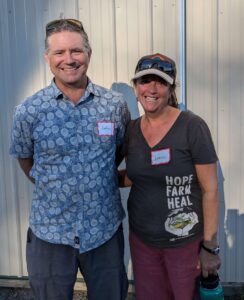
We’re so grateful to the Goods for hosting us and sharing their farming story so openly.
This apprenticeship meetup always reminds me about the importance of our work, which is really to help folks find a pathway to sustaining a career in farming.
It’s not a straight or narrow path by any means. It looks different for everyone, and a lot of times you have to blaze the trail yourself. But by connecting beginning farmers with those who have figured out something that works, apprenticeship helps light the way.
Ready to level up your farming career through apprenticeship?
Learn more & apply>>
Could hosting an apprentice would support your vegetable operation?
Learn more & apply >>